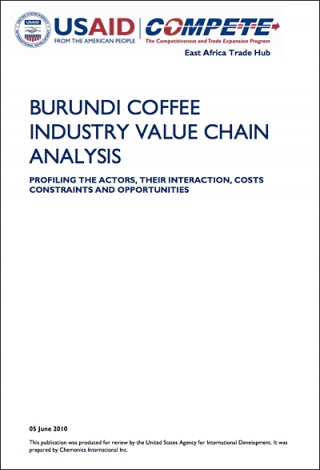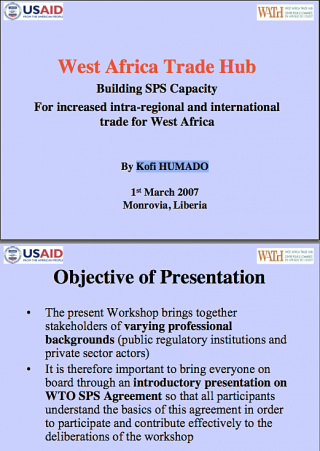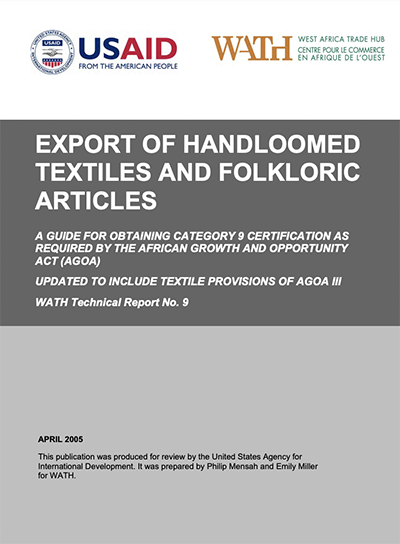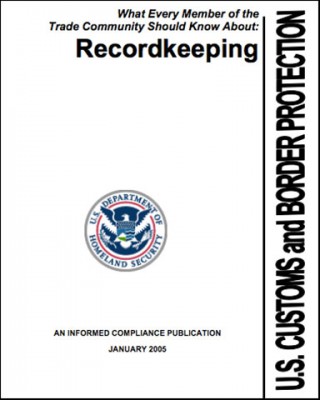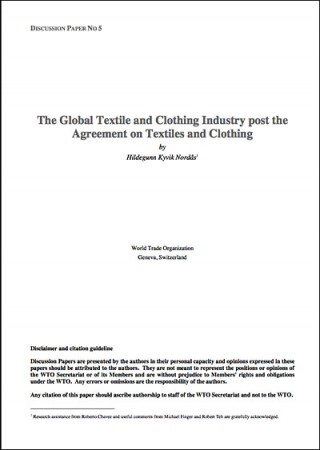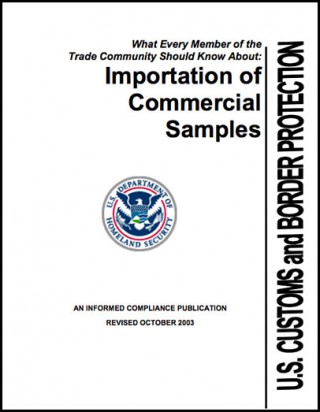Toolkit Downloads
Burundi coffee supply value chain analysis (USAID / COMPETE 2010)
Profiling the actors, their interaction, costs constraints and opportunities. The coffee industry is the country's main export, providing about 70% of foreign currency revenues. Roughly 600,000 rural households, or almost 40% of the population, grow coffee and coffee represents an important source of income in the family economy. The Burundian farmer’s interest in growing coffee is based on the fact that coffee is a seasonal product that provides a chunk of income larger than what the farmer is able to save during the course of the year. According to the latest statistics available, income from coffee growing provides 50% of family income in the northern region of Buyenzi1. This revenue allows the farmer to finance house construction and send children to school, as well as other small investments. In addition, with the initiation of micro-credit schemes in rural areas, ownership of coffee trees is the main guarantee that farmers can offer micro-credit institutions (COOPEC2 and others). It worth noting that the construction of de-pulping stations in rural areas led to the (modest) beginnings of industrialization, employment for local labor during the coffee campaign and the opening up of rural areas through the construction of factory access roads which are also used for other purposes.
Export of handloomed textiles and folklore articles
Exporting handloomed fabrics to the United States under AGOA requires that the exporting country has an approved Textile Visa system and other measures to protect against illegal product sourcing (referred to as “illegal trans-shipment”). In addition, a Category 9 product approval is required for export of handloomed fabrics, hand-made articles from handloomed fabrics, folkloric articles and ethnic printed fabrics to the US. Each shipment must be accompanied by the paper documentation that the products meet rules of origin requirements: 1) Textile Certificate of Origin, and 2) commercial invoice embossed with a Textile Visa stamp.
What every member of the international trade community should know about recordkeeping
Two new concepts that emerge from the Mod Act are “informed compliance” and “shared responsibility,” which are premised on the idea that in order to maximize voluntary compliance with laws and regulations of U.S. Customs and Border Protection, the trade community needs to be clearly and completely informed of its legal obligations. Accordingly, the Mod Act imposes a greater obligation on CBP to provide the public with improved information concerning the trade community's rights and responsibilities under customs regulations and related laws. In addition, both the trade and U.S. Customs and Border Protection share responsibility for carrying out these requirements. For example, under Section 484 of the Tariff Act, as amended (19 U.S.C. 1484), the importer of record is responsible for using reasonable care to enter, classify and determine the value of imported merchandise and to provide any other information necessary to enable U.S. Customs and Border Protection to properly assess duties, collect accurate statistics, and determine whether other applicable legal requirements, if any, have been met. CBP is then responsible for fixing the final classification and value of the merchandise. An importer of record’s failure to exercise reasonable care could delay release of the merchandise and, in some cases, could result in the imposition of penalties.
What every member of the trade community should know about: Commercial samples
Guide to the importation into the United States of commercial samples


